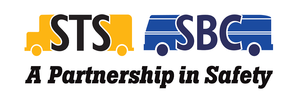Suffolk Transportation Awarded DERA Grant for All-Electric School Buses
Funding Agency: Environmental Protection Agency
Date of Award: October 2020
Amount Awarded: $1,152,687.26
Number of All-Electric School Buses: 7
The Bay Shore Union Free School District and Suffolk Transportation Service through the federal government's CLEAN BUSES initiative is providing significant reductions in diesel particulate matter for the thousands of residents living in the Bay Shore School District and Long Island – helping children and families who are victims of respiratory illness and asthma.
Suffolk Transportation Service is proposing to expand its all-electric initiative to include the neighboring school districts of Brentwood and Central Islip. This bold initiative represents Suffolk Transportation’s innovative approach to address the seriousness of diesel particulate matter on Long Island and will help create a healthier breathing environment for our children and families.
Studies have shown that minority communities often suffer from respiratory illnesses, like asthma, at a higher rate, which make targeted clean air initiatives like the ones Suffolk Transportation has launched in Bay Shore and is proposing to initiate in Brentwood and Central Islip very important.
According to Suffolk County’s recent Community Health Assessment, all three municipalities rank among the top 10 of communities with asthma-affected youth – a sobering statistic that underscores the critical need for region-leading emissions reduction initiatives like CLEAN BUSES.
Suffolk Transportation Service is committed to being a leader in bringing alternative fuel solutions to the student transportation market and ensuring all-electric school buses are deployed by a knowledgeable and dependable school bus operator.
Priority Funding is Given to Applicants Who Meet Certain Standards
Priority for funding is given to projects which can demonstrate the abilityof the applicant and project partners to promote and continue efforts to reduce emissions after EPA funding for this project has ended. EPA will evaluate this under criterion 5. under Section V.A. of this RFA.
Specifically, applications will be evaluated on whether the applicant and/or its project partners have existing policies or new commitments to, by the end of the project period, adopt idle-reduction policies, adopt contract specifications requiring the use of cleaner, more efficient vehicles and equipment, complete an up to date mobile source equipment inventory, or adopt other strategies to promote and continue efforts to reduce diesel emissions.
Applicants must have a publicly available baseline mobile source emission inventory for PM2.5 and/or NOx that was completed after 2016 or commit to completing one before the end of the project period.
In addition, applicants must have a publicly available plan to reduce mobile source emissions that includes specific PM2.5and/or NOx emission targets that was completed after 2016 or commit to completing one before the end of the project period.
Finally, applicants must have established or commit to establishing before the end of the project period, a clear point of contact in a public platform (e.g., newsletter, website) for community issues and complaints (specific to air quality or broader) and a publicly documented policy or process for getting community input on operations and projects that impact air quality. The process could be recent (within a year) or upcoming (before the end of the project period) meetings and/or a policy or process to otherwise get input (e.g., a standing citizens advisory committee).
DERA Program Performance Measures and Planning Requirements
September 2021 – April 2022 Performance Measures (Year 2): Community and public update on reduction of PM2.5, HC, NOx, and O3 emissions through project 1st first year completed. Demonstrate 100% reduction in on-road emissions within project area provided on project support partner webpage, all project support partner allowable costs submitted for reimbursement, updated school district transportation RFP requirements adopted.
May 2022 – August 2022 Performance Measures (Year 2): Continued education of public with regard torealized reductions in NOx, PM2.5, HCand O3 emissions throughout first and second phase of C.L.E.A.N.B.U.S.E.S. program, qualified list of community suggestions for future phases incorporated into actionplan and deliverable recommendations for program expansion.
December2020 – November 2021 Performance Plan (Year 1): Executed Project Support Agreements with allpartners, project leadership meetings underway, purchase orders for replacement school buses completed,driver training completed, bus route designation assigned for all buses, and daily operation on designatedroutes verified by all school districts. Scrappage process documented for reporting needs. Designated link forproject webpage provided to project lead and partnering school districts. (Short-Term Results to be achieved1st year).
December 2021 – July 2022 Performance Plan (Year 2): Public community updates scheduled and advertisedon project webpage, documented revisions for school district transportation RFP’s captured. Electric busmaintenance records and complications with documented for review by project leadership team. Publicsolicitation for program enhancements initiated. (Short to Mid- Term results to be achieve through projects 2nd year).
August 2022 – November 2022 Performance Plan (Year 2): Revised Transportation RFP’s submitted forapproval to school district Board of Education committees, public suggestions qualified for projectenhancement by project leadership, Continued website dissemination of monthly electric bus designated routeusage and maintenance reports including project final report, Transportation project support partner SuffolkTransportation submits recommendations to project leadership on steps taken to reduce diesel school buspurchases. (Long Term results that will impact future phases development after project performanceperiod has ended).
